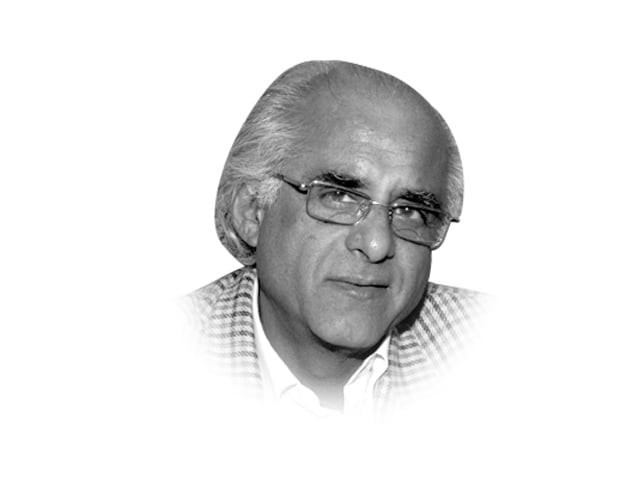The death of Chakar Khan
What touched most was the feeling with which he spoke for the Baloch, the way state had perpetrated injustice on them.

We motored cross-country under a sky burnt to a half tone by the fierce sun in a maze of hills, coloured chocolate brown, fiery red or simply seared sooty black. It was typical Balochistan landscape, surreal and terrifying for its solitude with nary a soul in sight.
Then, across the shimmering heatwaves, Asad pointed out a solitary walker. As our vehicle drew up, the man paused and turned around. He was a wiry, good looking man about Asad’s age, his head swathed in the Baloch turban, part of which covered his beard. His bright, bloodshot eyes burnt like little flames.
Asad spoke with him in Balochi. I had known for years that Asad had gone to fight on the side of the Baloch but I had never realised that in those years of his struggle, he had mastered their language as well. He had never mentioned it.
All of a sudden, the Baloch cocked his head, looked hard at Asad and with the gleam of recognition in his eyes said, “Chakar Khan?” Then he told Asad his own name and my friend got out of the vehicle to grab the man in a bear hug. This was the camaraderie of two men baptised together under fire. The meeting after a hiatus of a decade and a half and the genuine warmth of the two men locked in a hug was a heart-warming sight. It was the stuff of movies.
As we drove on, I asked Asad about the man calling him Chakar Khan. I learned — again, for the first time — that his Marri comrades had bestowed upon him the name of the great Rind chieftain in recognition of his valour under fire.
Now, Asad was a year senior to me in school and though we were never friends, I had known him for all those years. It was some days before our trip to Marri country that we actually met. What surprised me was that Asad did not brag about his prowess in Balochi — a language that hardly any Punjabi can speak — or of the title Chakar Khan. Later, when I wheedled him to show me a spot where he had fought an action, we paused by a low ridge and he recounted the details of that long ago raid in which the army was discomfited. Again, there was no boast. It was just a matter of fact recounting of an event in which he had been a player.
Thereafter, I met Asad off and on and I found he was never ruffled by anything; like very deep waters, he was always calm on the surface. He was a man I never saw angry; whose voice was never raised. What touched the most was the feeling with which he spoke for the Baloch and the way the state of Pakistan had perpetrated injustice after injustice upon those good people.
Now, as of October 30, he is no longer with us. He suffered from a heart condition and after his 2005 bypass, I once joked with him about his smoking that he did with a vengeance. In James Cagney style, Asad had said, “When you’ve got to go, you’ve got to go.”
When the old heart played up again, complications with lungs and kidneys finally took away the hero from us. My wife, who attended the funeral, says she did not see a dead man in the shroud. She saw a man peacefully asleep with every colour of life still in his face.
But the undeniable truth is that Asad Rehman alias Chakar Khan, the only Punjabi to win this enviable laurel, is gone. Death has silenced the sole Punjabi voice for Balochistan and the Baloch people. His book on Balochistan languishes unpublished because, so they say, of vested interest. Death may have taken Chakar Khan but let us not let his cri de coeur go unheard.
Published in The Express Tribune, November 10th, 2012.















COMMENTS
Comments are moderated and generally will be posted if they are on-topic and not abusive.
For more information, please see our Comments FAQ